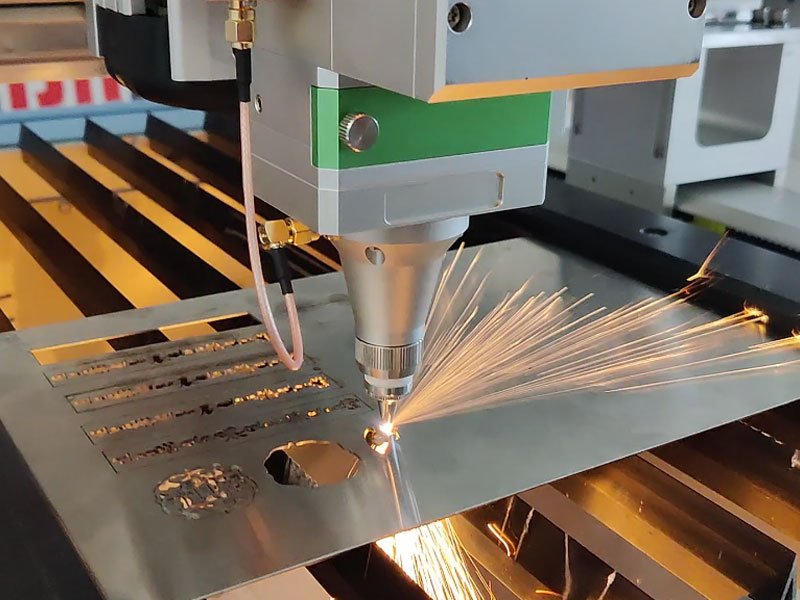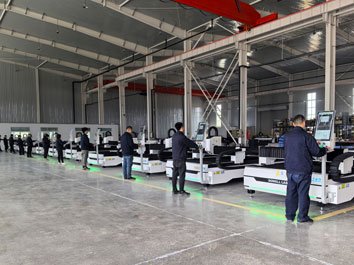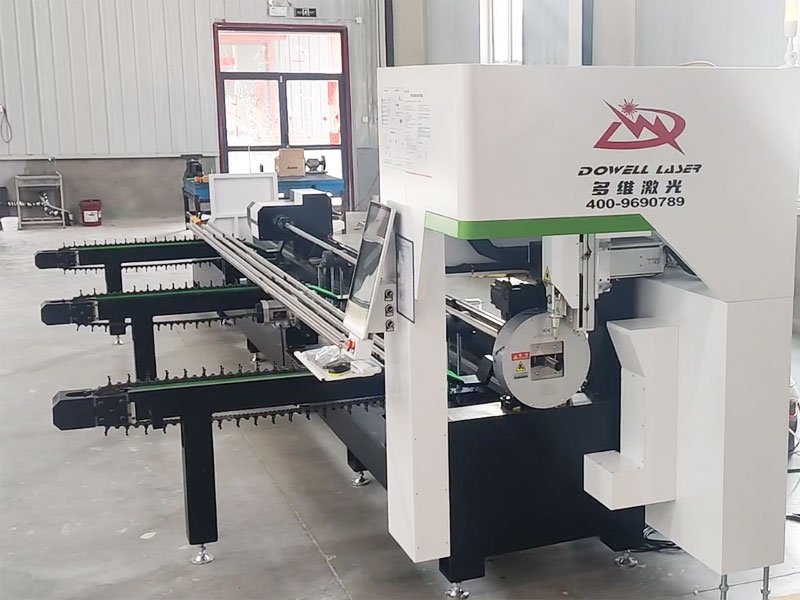6kw fiber laser cutting machine is a popular model in the industrial market. Many customers are not very clear about the parameters of the equipment after purchasing. This article will focus on the 6kw fiber laser cutting parameters.

What Is the Optimal Cutting Speed for 6kw Fiber Laser Cutting
Carbon Steel
| Thickness (mm) | Cutting Speed (m/min) |
|---|---|
| 6 | 5.7 – 6.8 |
| 10 | 2.0 – 2.3 |
| 20 | 0.5 – 0.7 |
| 25 | 0.4 – 0.5 |
Stainless Steel
| Thickness (mm) | Cutting Speed (m/min) |
|---|---|
| 6 | 2.7 – 3.2 |
| 10 | 1.9 – 2.1 |
| 15 | 1.4 – 1.7 |
| 20 | 0.7 – 0.8 |
Aluminum
| Thickness (mm) | Cutting Speed (m/min) |
|---|---|
| 6 | 15 – 20 |
| 12 | 10 – 15 |
| 20 | 6 – 10 |
- Material type and thickness: Thicker materials require slower speeds for complete cutting.
- Assist gas: Using the right assist gas (oxygen for mild steel, nitrogen for stainless steel and aluminum) at optimal pressure improves cut quality and speed.
- Focus position: Precisely focusing the laser beam on the material surface enables faster cutting.
- Laser power density: Higher power density from the 6kW laser allows faster cutting, especially for thicker materials
6kw Laser Cutting Capacity & Speed Chart
Mild Steel
| Thickness (mm) | Cutting Speed (m/min) |
|---|---|
| 3 | 20-25 |
| 6 | 12-16 |
| 10 | 8-12 |
| 15 | 5-8 |
| 20 | 3-5 |
Stainless Steel
| Thickness (mm) | Cutting Speed (m/min) |
|---|---|
| 3 | 18-22 |
| 6 | 10-14 |
| 10 | 6-10 |
| 15 | 4-7 |
| 20 | 2-4 |
Aluminum
| Thickness (mm) | Cutting Speed (m/min) |
|---|---|
| 3 | 25-30 |
| 6 | 15-20 |
| 10 | 10-15 |
| 15 | 6-10 |
Maximum Cutting Thickness for 6kw Fiber Laser Cutting
Carbon Steel
Stainless Steel
Aluminum
Brass
Copper
Maximum cut thickness may vary based on factors such as material composition, cutting speed, assist gas type and pressure, beam quality, and machine capabilities.
While a 6kW laser can theoretically cut to the thicknesses above, cut quality and speed may suffer for thicker materials near the maximum limit. It is recommended to perform test cuts and optimize parameters for specific applications to achieve the desired cut quality and efficiency.
Factors of Fiber Laser Cutting Speed
- Laser Power: Higher power allows faster cutting speeds, especially for thicker materials.
- Assist Gas: Using the optimal assist gas (oxygen for mild steel, nitrogen for stainless steel and aluminum) and pressure improves cut quality and speed.
- Focus Position: Precisely focusing the laser beam on the material surface is crucial for efficient cutting.
- Beam Quality: A high-quality laser beam with good mode quality enables faster cutting.
How Does the Beam Diameter Affect 6kw Fiber Laser Cutting
Beam diameter plays a crucial role in the cutting performance and quality of the 6kW fiber laser cutting system. Here’s how it affects the cutting process:
- Slit Width: A smaller beam diameter results in a narrower kerf (cutting width), allowing for more precise and complex cuts. A larger beam diameter results in a wider kerf, which may be desirable for certain applications that require a wider cut.
- Cut Quality: Smaller beam diameter focuses laser energy into a tighter spot, resulting in cleaner, smoother cut edges and reduced dross (re-solidified material) formation. This is especially important when cutting thinner materials or when high-quality cuts are required.
- Cutting speed: For a given laser power, a smaller beam diameter allows for higher energy density, resulting in faster cutting speeds, especially with thinner materials. However, for thicker materials, a larger beam diameter may be preferred to increase interaction volume and cutting efficiency.
- Material Thickness: Optimal beam diameter is affected by material thickness. Thinner materials typically benefit from a smaller beam diameter for better cut quality and faster speeds, while thicker materials may require a larger beam diameter for increased interaction volume and cutting efficiency.
- Focus position: The beam diameter at the focus is the smallest and the laser energy is the most concentrated. Precise control of the focus position relative to the material surface is critical for optimal cutting performance, especially when using smaller beam diameters.
Beam diameter is not an isolated parameter but interacts with other factors such as laser power, assist gas type and pressure, and cutting speed. To achieve the cutting performance and quality required for a specific application, all parameters must be properly optimized.
For a 6kW fiber laser cutting system, a smaller beam diameter generally results in a narrower kerf width, better cut quality, and potentially faster cutting speeds for thin materials. However, for thicker materials or applications requiring wider kerfs, a larger beam diameter may be more appropriate if the laser power and other parameters are adjusted accordingly.
Contact Us for a Quote
If you want to know more about laser equipment, you can directly contact DOWELL LASER, and we will provide you with a complete laser equipment solution according to your custom design and needs.



